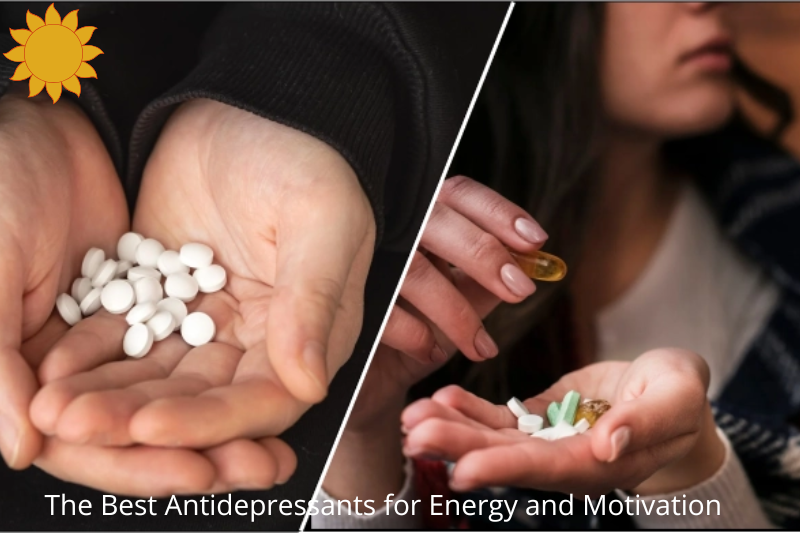Depression is a complex mental health condition that impacts millions worldwide, yet symptoms vary greatly between individuals. For some, lack of incentive and vigor drain daily life of all delight. Tasks that once seemed inconsequential now demand Herculean effort, and emergence from slumber feels an insurmountable trial. Finding an apt remedy is key to reclaiming ownership of one’s days.
Fortunately, a variety of treatments exist. Prescription of antidepressant medications represents a common strategy, aimed at regulating imbalance and restoring equilibrium. That said, not all medicines mitigate melancholy equally—some principally soothe spirits, while others show more skill at lifting lassitude and rekindling zeal.
This essay explores top antidepressants for enhancing spirit and determination, their mechanisms, and factors to weigh in selection.
Depression manifests diversely, but fatigue and lack of drive appear commonly and prove challenging to overcome. Imbalances in cerebral neurotransmitters like serotonin, dopamine, and norepinephrine that rule temper, incentive, and alertness likely underlie these.
Serotonin plays a pivotal role in emotional regulation and stability.
Dopamine relates to pleasure, motivation, and reward-driven behavior.
Norepinephrine impacts energy, attentiveness, and focus.
Many antidepressants act by augmenting availability of these chemicals in the brain. The ideal choice for an individual stifled by lethargy and lack of drive will often target dopamine and norepinephrine more than serotonin alone.
Antidepressants That Boost Energy and Motivation
Here are some frequently recommended antidepressants renowned for their animating qualities:
Bupropion (Wellbutrin)
Class: Norepinephrine–Dopamine Reuptake Inhibitor (NDRI)
Common brand names: Wellbutrin, Aplenzin, Zyban
Why these medications are effective:
Bupropion primarily targets dopamine and norepinephrine, neurotransmitters closely linked to alertness, drive, and focus. This makes it beneficial for those struggling with low energy, lacking motivation, and poor concentration. Unlike most antidepressants, it causes less sedation and weight gain. It can help improve mental clarity and is often prescribed for depression accompanied by fatigue or brain fog, or when other medications caused unwanted side effects.
Venlafaxine increases serotonin and norepinephrine, improving both mood and vigor. At lower doses, it mainly affects serotonin but at higher doses, its impact on norepinephrine enhances alertness and motivation. This medication can reduce symptoms of anxiety and depression while potentially enhancing mental stamina. It may prove effective if SSRIs did not work. Higher amounts can elevate blood pressure while common side effects include nausea, dizziness, and sleep problems if abruptly stopped.
Desvenlafaxine is a newer formulation of venlafaxine that manages fatigue and lack of motivation in depressed patients through a balanced influence on serotonin and norepinephrine like its predecessor. It provides a useful option for addressing both emotional and physical symptoms of depression such as weariness, low energy, and concentration difficulties.
The passage details several antidepressant medications, outlining their classes, efficacy, benefits, potential side effects and best uses. Drugs such as bupropion offer a quicker onset with fewer interactions than older options, and can improve energy levels while reducing irritability. However, this also brings mild risks like dry mouth, sweating and constipation or a slight rise in blood pressure. Therefore, bupropion is ideal for those requiring a balance between mood enhancement and liveliness, particularly those who have tried SSRIs without accomplishing remission.
Another SSRI discussed is fluoxetine, commonly branded as Prozac. While most in its class tend to be sedating, fluoxetine is among the few energizing selections. This qualifies it for people feeling slowed by depression yet not necessarily needing norepinephrine or dopamine activation. Advantages involve a long half-life diminishing withdrawal hazard and an uplifting effect for some. It is extensively available and well-researched. Nevertheless, potential adverse effects involve insomnia, sexual dysfunction and gastrointestinal discomfort. As a result, fluoxetine is best suited for individuals experiencing mild to moderate depression alongside emotional numbness or slowed thinking but seeking a gentler vitality boost.
The passage also outlines duloxetine, an SNRI. Duloxetine not only aids depression but also benefits physical pain and perpetual fatigue. This makes it a sound pick for those feeling drained mentally and physically. It elevates both serotonin and norepinephrine. Benefits may reduce pain and weariness. Further, it has been helpful for fibromyalgia and neuropathic suffering. Duloxetine can also improve temperament and motivation. Potential drawbacks encompass nausea, dry mouth, drowsiness or sleeplessness relying on the unique person. Consequently, it is most befitting for patients experiencing both emotional manifestations and corporal lethargy or long-term agony conditions.
Things to Consider When Choosing an Antidepressant
While these medications can help, determining the ideal antidepressant for any individual relies on comprehending their unique experiences, medical history, and goals for treatment. The following are important factors to discuss with a doctor:
Symptom Profiles
For those whose main troubles involve vigor and motivation, drugs that target norepinephrine and dopamine (like Wellbutrin or SNRIs) tend to work better than SSRIs.
Tolerance for Side Effects
Certain patients may endure one medication more willingly than others. If someone is sensitive to anxiety or insomnia, a stimulating antidepressant may not be the most suitable fit.
Additional Health Issues
Conditions like hypertension, seizures, or anxiety disorders could impact which antidepressants are safest and most effective.
Medication Interactions
Always inform a healthcare provider about other prescriptions or supplements, as some antidepressants can interact with drugs like blood thinners, antipsychotics, or anti-seizure medications.
Trial and Error
Antidepressants frequently require 4–6 weeks to demonstrate full impacts, and sometimes attempting greater than one is necessary to find the right match. Patience and communication with your provider are pivotal.
Alternatives and Enhancements to Medication
While antidepressants are a powerful tool, they often work best as part of a comprehensive treatment plan, which may include:
Therapy (e.g., cognitive behavioral therapy)
Exercise, which boosts natural dopamine and serotonin
Proper nutrition and hydration
Sleep hygiene
Supplements, like vitamin D, omega-3s, or SAMe (under medical supervision)
Routine and structure, which can support behavioral activation
Final Thoughts
Depression that saps vigor and motivation can feel relentless—but the right treatment can make a world of difference. Medications like bupropion, venlafaxine, and duloxetine have demonstrated strong potential to boost alertness, focus, and drive in people who feel slowed down by depression.
Choosing the best antidepressant is a highly personal decision that should always be guided by a qualified healthcare provider. With time, support, and the right tools, it’s entirely possible to rediscover vigor, motivation, and a renewed sense of purpose.



